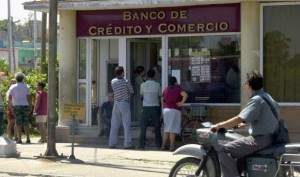Jonathan Weil reports: Proxy advisers, like anyone else, can get pretty emotional. Take Dominique Biedermann. He runs Ethos, the largest proxy adviser in Switzerland, which recently recommended that Credit Suisse Group AG shareholders reject the bank’s compensation plan.
“It is shocking that management compensation has been increasing ever more for two consecutive years,” Biedermann said. “It is high time to show the board of directors that many shareholders have lost their trust in them. We are no longer willing to support the way our bank is being managed.”
Ethos’s clients hold 3 percent of Credit Suisse shares.
Last year, Brady Dougan, the Credit Suisse chief executive officer, received a 26 percent pay increase to 9.8 million Swiss francs ($11.1 million). And for what? Well, if the Justice Department has its way, Credit Suisse or a subsidiary may soon have to plead guilty to criminal charges because it got caught helping thousands of wealthy Americans evade their taxes. And pleading guilty requires a lot of hard work. So maybe that explains it.
Dougan also gets bonus points for claiming to be unaware of any such activity while it was going on, notwithstanding that he joined Credit Suisse in 1990, has been on the bank’s executive board since 2003 and has been the CEO since 2007. As he told the U.S. Senate Permanent Subcommittee on Investigations: “While that employee misconduct violated our policies, and was unknown to our executive management, we accept responsibility for and deeply regret these employees’ actions.”
According to the Senate panel’s report, Credit Suisse employed 1,800 bankers in eight different areas of the bank to open and service Swiss accounts for U.S. clients. Yet heavens no, Dougan had no inkling that some of those clients were using Swiss bank accounts to hide money from the Internal Revenue Service. Eight-one percent of the shareholders backed Credit Suisse’s compensation plan in a non-binding vote at the company’s annual shareholder meeting in Zurich.
There is much we can learn from this vote: 1) Credit Suisse shareholders don’t care if the bank committed crimes. 2) They don’t care if the bank pleads guilty to criminal charges, because it’s not as if the Justice Department is going to try putting Credit Suisse out of business. 3) They appreciate the raw skill and talent that are necessary for a CEO to both run a Swiss bank and stay oblivious to the widespread tax evasion going on around him.
It has been almost three years since the Justice Department first told Credit Suisse that it was the target of a criminal investigation. The bank spent the intervening years dragging out the probe. It delayed handing over information, hiding behind Swiss bank-secrecy laws. Meanwhile, its Swiss rival, UBS AG, signed a deferred-prosecution agreement with the Justice Department’s tax division in 2009, paid $780 million and got the matter over with.
If Dougan had been smarter about this, Credit Suisse almost certainly could have settled this case without the bank having to plead guilty to anything. But now the times and prosecutorial fashions have changed. After years of handing out deferrals and non-prosecution agreements like candy, the Justice Department is looking to make an example of a big bank (preferably a foreign one) and convince the American public that large financial institutions can’t break the law with impunity. Credit Suisse may become that poster child. And it all happened on Dougan’s watch.











